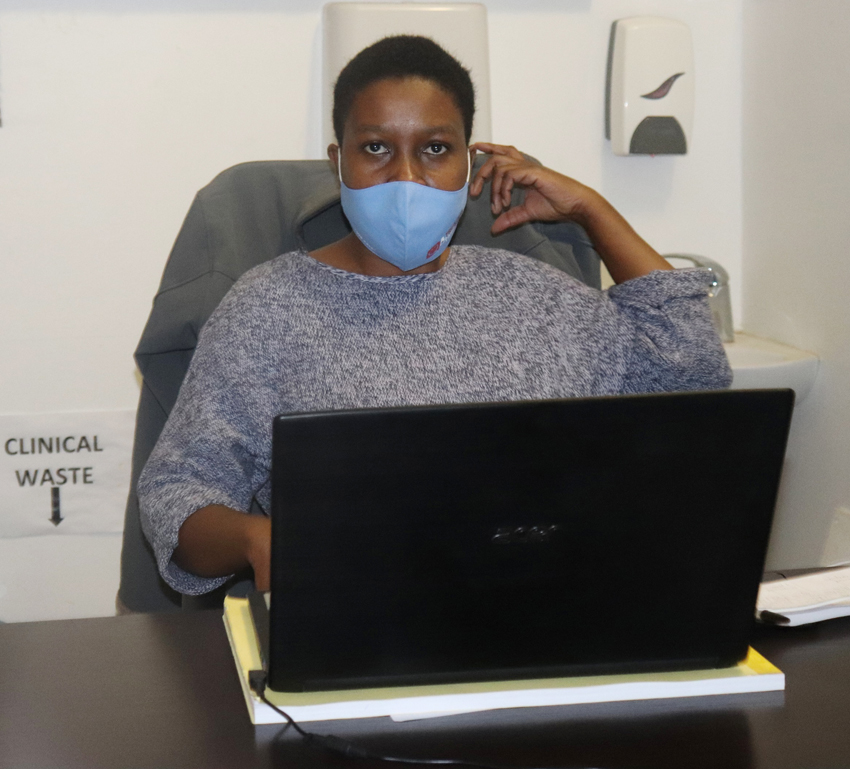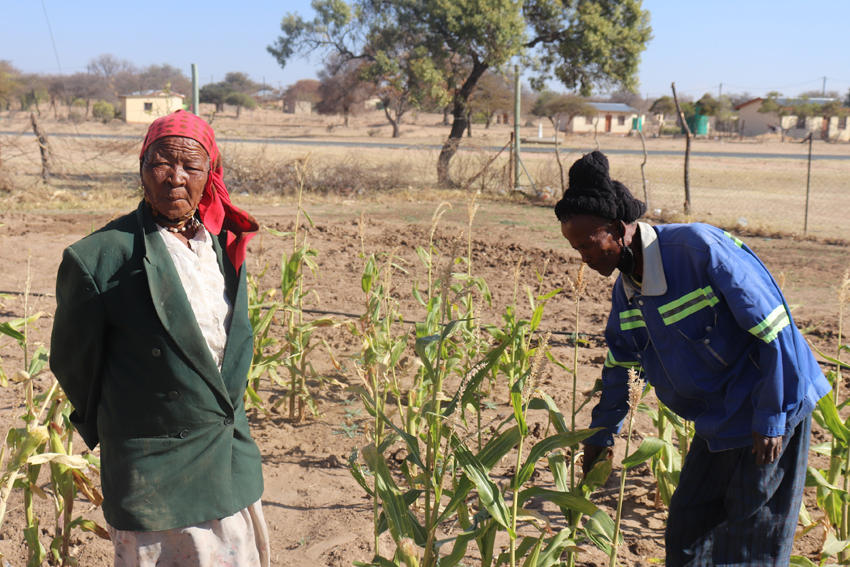Gonoga holds on to his fatherhood dream
17 Aug 2020
Despite his frailty due to old age, a Sehunou septuagenarian Mr Makholo Gonoga still hopes to one day hold in his arms his own bundle of joy.
Of the many milestones that he aspires to reach before he could join his maker, having a pair of little feet pattering about is perched right at the very top, followed by the desire to own a vehicle.
Clearly still shattered by his wife’s miscarriage many moons ago, subsequent failures to fall pregnant has brought endless pain to the old man, and to date he still pleads with the wife of his youth to not lose hope that one day, they too, like Sarah and Abraham in the Holy Bible, could be blessed with a child in their old age.
Though they did not seek medical help to establish the cause of their fertility problems, Mr Gonoga lays the blame on his wife, accusing her of refusing to get help so as to bear children for him.
With a vigorous head shake, he blatantly refutes the suggestion that it could be him who has fertility problems.
“Nna ga kena mathata, molato o mo go ene. Ke sa le ke rile a ye sepatela, a ye go baakanngwa ditshika re tshole bana, jaanong o a gana a re o a tshaba,” he said lamenting that his wife had refused to seek help, adding how his wish was to have at least five children.
Despite the couple’s advanced age, Mr Gonoga believes time is still on their side, and he cannot wait for the day his wife would finally agree to go and get ‘fixed’ at the hospital.
The 70 year-old has at some point asked his wife for permission to get a second wife with whom he could try for children, a proposal that was repeatedly shot down until he stopped talking about it. The wife, Ms Romola Tsoroxee, pours scorn on the idea that she could have a child at her age.
She however, does not dispute what her husband said that she refused to seek medical help to solve their fertility woes.
Her biggest fear, the stumbling block that has stood stoically between them and their joy, would appear flimsy to some, but her face creases and she cringes and momentarily stares at the ground when she talks about it.
“Golo kwa (kwa sepatela) ga ke go batle, go apolwa motho a dubadubiwa,” she says.
It appears, however, that she has not, at any point in her life, gone through the kind of exercise she speaks of, but has heard tales from other women in the community that they get undressed when they go to health facilities to get treated for problems relating to the reproductive system.
And it is the thought of being undressed and her body fiddled with by a stranger that has stopped her from seeking help.
Another stumbling block is her fear of labour pains and delivery. As things stand, no amount of money would make her go through that agony again.
“Ene ngwana yo o tlhokafetseng yoo e ne e le ene wa bofelo. Ditlhabi di botlhoko. Yo ene o a tshameka kana ga a itse sepe,” she says, referring to the husband.
Medically though, while it seems Ms Tsoroxee should probably accept the plight that fate has dealt her, there is still hope for the old man, who, should he seek help, can still get a woman pregnant.
According to Serowe-based medical practitioner, Dr Boikhutso Lethapa of Trusted Care Medical Centre, while fertility in men starts to decline at 45, a man generally begins to struggle with his fertility at 60.
Dr Lethapa says even after the age of 60, a man can still reproduce, though often with some level of difficulty.
She indicates that when fertility declines, as it should, with age, challenges such as insufficient volumes of semen, low sperm production, production of abnormal sperms, as well as blockages in the male reproductive system, often make it difficult for a man to get a woman pregnant.
For women, the doctor points out that the older they grow, the odds of falling pregnant get stacked quite high against them, unless they resort to an assisted pregnancy depending on what the cause of the infertility would be found to be.
Assisted pregnancies are, however, a pretty risky undertaking for older women, Dr Lethapa says, given how taxing pregnancy can be even on a healthy and youthful woman.
She notes that pregnancy complications become more common from a woman’s mid-30’s, hence medically it is advisable for women to have children in their 20’s up to their mid-30’s.
“The older a woman gets, the higher the risk of complications such as pre-eclampsia and postpartum hemorrhage,” she notes.
Dr Lethapa adds that for women, once one reaches menopause, her fertility would have come to a close around five years before.
On why older women at times fall pregnant, the doctor explains that it often happens to peri-menopausal women; adding that for one to be said to have reached menopause, they ought to have not had their periods for at least a year.
Dr Lethapa explains nonetheless that it is unfair that society often blames a woman if a couple cannot, for whatever reason, have children.
She says it should be understood that women account for only one third of infertility cases in couples, while men also make up one third of the cases.
For the remaining one third of couples, she says, the problem lies with both the man and the woman or in some cases, it is unknown.
Therefore, she says it is crucial for a woman and her partner or spouse to get evaluated medically to establish the cause of their infertility instead of the woman being saddled with blame without justification.
As for Ms Tsoroxee’s crippling fear of pain of labour pains, www.wikipedia.org describes the fear of pain, a condition termed algophobia, as ‘an abnormal and persistent fear of pain that is far more powerful than that of a normal person’.
The website says the condition can be treated with behavioral therapy and anti-anxiety medication.
Further to that, www.tranceformpsychology.com shows that algophobia ‘may be the result of negative emotional experiences that can be either directly or indirectly linked to the object or situational fear’.
It says if not addressed, the symptoms of this phobia, which can range from panic attacks, palpitations, fatigued muscles and poor quality sleep amongst many others, can be normalised and accepted by the sufferer as part of the limiting beliefs they have in life. ENDS
Source : BOPA
Author : Keonee Kealeboga
Location : SEHUNOU
Event : INTERVIEW
Date : 17 Aug 2020







